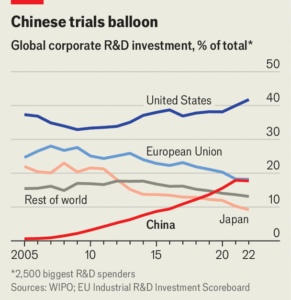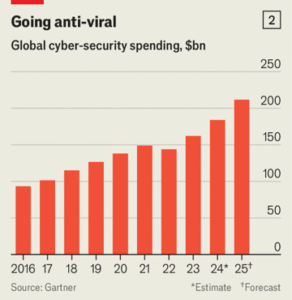Your browser does not support the <audio> element.
PITY EUROPE’S luxury giants. On July 15th Swatch Group, a Swiss watchmaker, said its revenues and operating profit ticked down in the six months to June, by 14% and 70% year on year, respectively. The next day Hugo Boss, a German fashion house, cut its earnings forecast for 2024 and Richemont, another Swiss group, reported that its quarterly sales in China, which accounts for a quarter of the $1.6trn annual global luxury market, plunged by 27% compared with last year. All eyes are now on the world’s luxury colossus, LVMH, which will report results on July 23rd.
All luxury stocks are suffering (see chart). But so-called aspirational brands have been hit the hardest. Burberry is a textbook example. On July 15th the 168-year-old British maker of chequered trench coats reported that sales slumped by 21% in the second quarter, year on year, cut its dividend and sacked its chief executive.

Burberry’s woes were years in the making. Faced with a choice of becoming Britain’s answer to Coach, a lower-luxury fashion firm from America, or moving upmarket, it chose the latter. It invested in flagship stores at swish addresses in London (New Bond Street) and Manhattan (Fifth Avenue). In 2022 it hired Daniel Lee, a British designer, to play up the brand’s Britishness. Mr Lee produced sophisticated collections but little buzz. Burberry also raised prices in its high-street shops while simultaneously selling about $1.3bn-worth of products at a discount in outlets, which tarnished the brand’s image.
That has made it particularly vulnerable in China, which remains the company’s biggest market and where it is now slashing prices. In the latest quarter Burberry’s sales in mainland China also fell by 21%, year on year. Amid the Communist Party’s crackdown on opulence, Chinese consumers are becoming more cautious about displaying bling in public. Federica Levato of Bain, a consultancy, remarks that China is in the grip of “luxury shame”.
Perhaps as a result, Chinese luxury buyers are becoming more discerning, preferring fewer, more chic items. Hermès, an uber-elegant maker of scarves and handbags that never sells at discounted prices, reported that its sales in China jumped by 17% in the first quarter, year on year, to €3.8bn ($4.2bn). Brunello Cucinelli, a similarly exclusive Italian brand, reported a 14% increase in Asian sales in the first half of 2024. Loro Piana and Zegna, two other posh Italian labels, are also doing fine.
Bain predicts that by 2030 the Chinese will again be the world’s keenest buyers of luxury, accounting for 40% of sales. But if their tastes continue to evolve towards the poshest of the posh, Burberry may not be a beneficiary of that reversal. Its incoming boss, Joshua Schulman, is expected to give up on his predecessor’s high-end ambitions and settle for the second tier, alongside his former employers, Coach and Michael Kors, and labels like Hugo Boss. Rational, perhaps. But not aspirational. ■
To stay on top of the biggest stories in business and technology, sign up to the Bottom Line, our weekly subscriber-only newsletter.
















